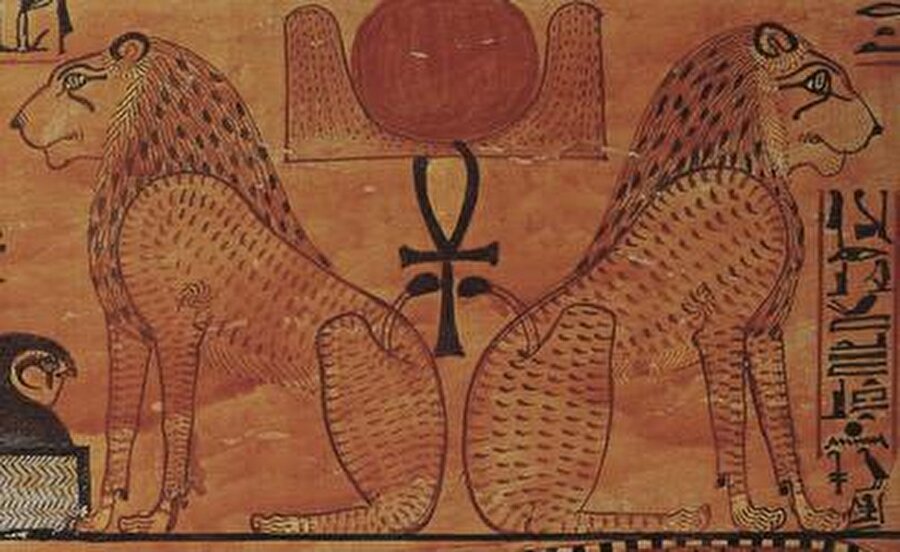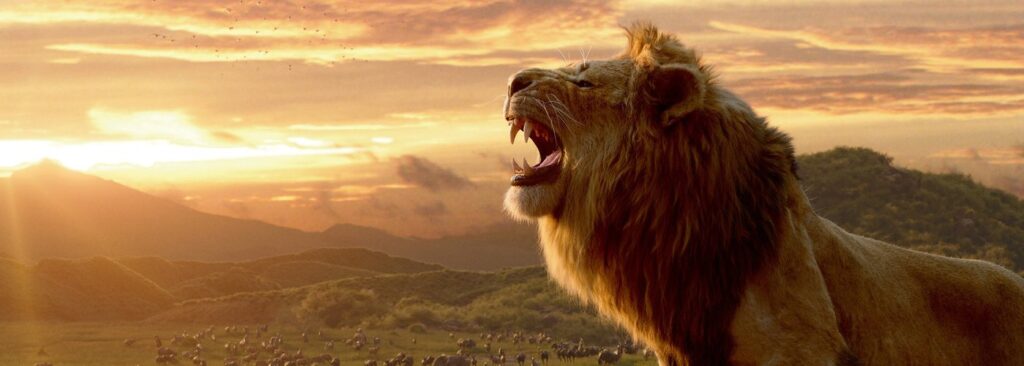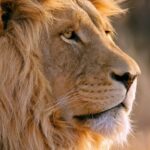Lions have long been regarded as the “king of the jungle,” a title that evokes images of majestic creatures commanding the wild. But what exactly earns lions this royal distinction? It’s not just their impressive appearance, with golden manes and powerful builds, but a combination of their physical traits, social structure, and symbolic importance that make them stand out as one of the most dominant and revered animals in the animal kingdom.
1. Physical Strength and Hunting Prowess
Lions are apex predators, capable of taking down large prey with their raw strength and teamwork. With muscular bodies and sharp claws, lions are built for power. They can weigh up to 250 kg (550 lbs), and their powerful jaws and teeth allow them to take down even the largest herbivores, such as wildebeests and buffaloes. While the lion’s strength is formidable, it is their ability to hunt in coordinated groups that truly sets them apart from other big cats.
2. Social Structure – The Pride
Unlike most big cats, which are solitary creatures, lions are social animals that live in groups known as prides. This social structure is vital to their success as hunters and defenders of their territory. A pride typically consists of several females, their cubs, and a few males. The females do most of the hunting, while the males protect the pride and defend their territory from rival males. The cooperation within a pride ensures that lions are not only efficient hunters but also formidable in protecting their domain.
3. Roaring Power and Territorial Dominance
The lion’s roar is another iconic feature that contributes to its reputation as the king of the jungle. A lion’s roar can be heard from up to 5 miles away, allowing them to communicate with other members of their pride and warn off intruders. This roar serves as both a declaration of dominance and a warning to other animals and rival lions to stay clear. A lion’s ability to defend its territory and maintain control over its environment further solidifies its position at the top of the food chain.
4. Symbolism and Cultural Significance

Lions have been revered throughout history for their strength, courage, and majesty. They appear in the mythology, art, and folklore of many cultures around the world, often as symbols of royalty, power, and bravery. In ancient Egypt, lions were associated with the sun god Ra and were often depicted in royal imagery. In modern times, the lion remains a symbol of leadership, strength, and authority, from national flags to corporate logos.
5. Survival Adaptations
Lions have evolved to be effective survivors in some of the harshest environments. Living in the African savannah, they have adapted to deal with both extreme heat and the scarcity of food during dry seasons. Lions are also skilled at conserving energy, often resting during the hottest part of the day and hunting in the cooler early morning or late evening. This adaptability makes them resilient in the wild and able to thrive in various ecosystems.
Conclusion
While lions may not reign over jungles in the literal sense — as they predominantly reside in savannas and grasslands — their dominance in the animal kingdom is undeniable. Their strength, social structure, territorial behavior, and cultural symbolism combine to give them the title of “king” in the wild. Whether through their fearsome presence in the wild or their lasting legacy in human culture, lions continue to embody the very essence of power and royalty.



